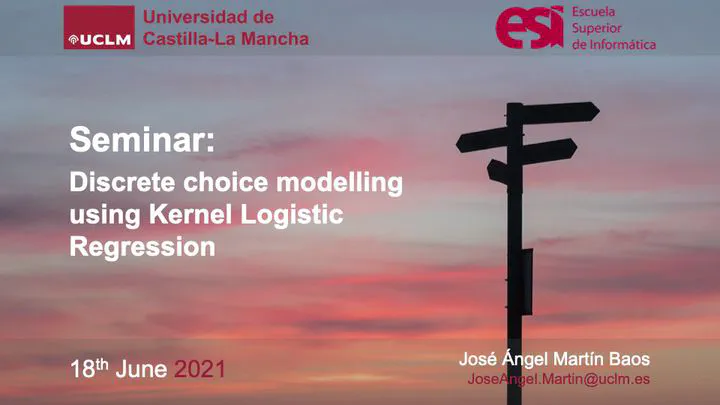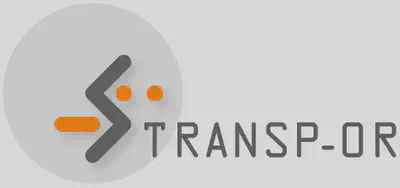Seminar: Discrete choice modelling using Kernel Logistic Regression

Seminar on the Transport and Mobility Laboratory (Transp-or) on the École polytechnique fédérale de Lausanne (EPFL), Lausanne (Switzerland).
Abstract
During the last years, machine learning methods has gained great popularity due to its success in applications such as autonomous vehicles, intelligent robots, image and voice recognition, etc. This has led to an increased use of these methods and a growing interest in expanding the domain of application of machine learning methods, such as in the field of transport modelling. This seminar presents one of these methods, the Kernel Logistic Regression (KLR), from the point of view of Random Utility Models (RUM). It is presented how KLR can be used to specify the utilities in RUM, freeing the modeler from the need to postulate a functional relation between the features beforehand. A Monte Carlo simulation study is conducted to compare KLR with the Multinomial Logit model, and two of the most promising machine learning methods: the Support Vector Machines and the Random Forests. We have shown that on the simulated data, KLR is the only method that achieves maximum accuracy and leads to an unbiased willingness-to-pay estimator for non-linear phenomena. We have also carried an experiment with a real travel mode choice problem, where Random Forests achieved the highest predictive accuracy, followed by KLR.

